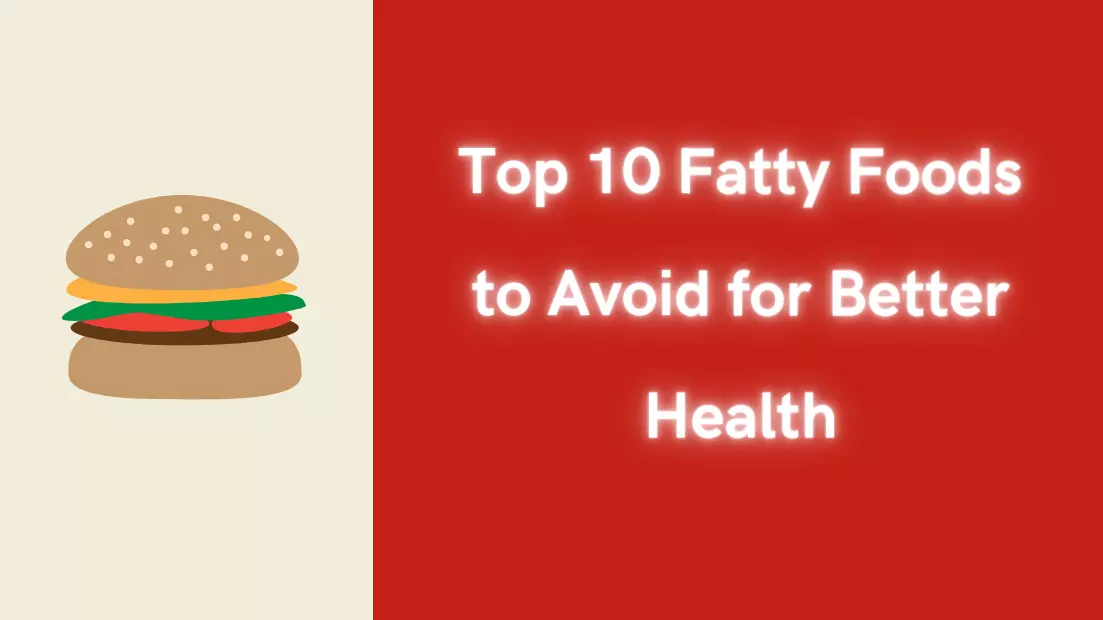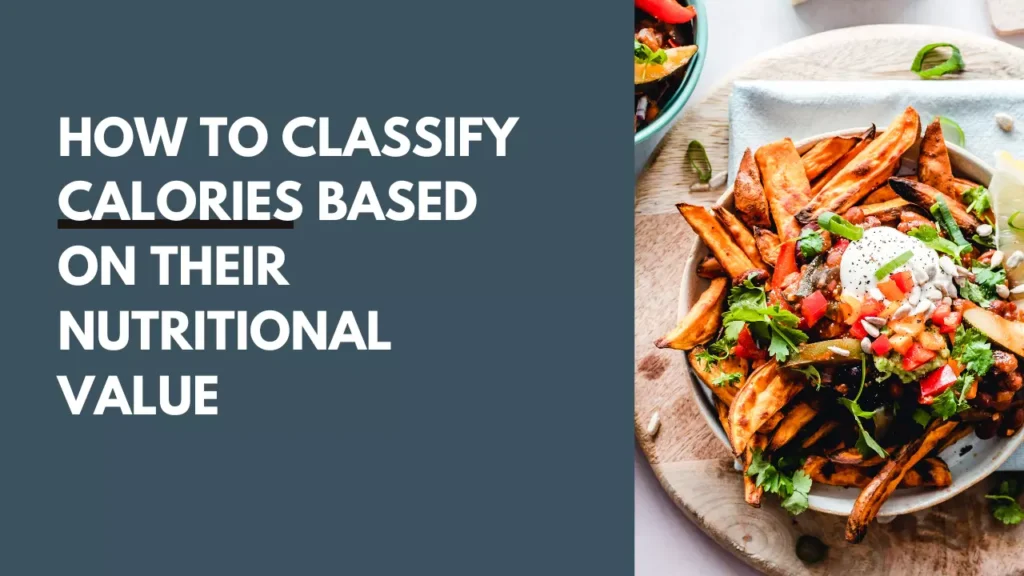
Maintaining a healthy diet is crucial for overall well-being, and steering clear of excessive fatty foods plays a significant role in achieving this goal. While some fats are essential for our bodies, indulging in certain types of fatty foods can lead to various health issues. In this article, we’ll explore the top 10 fatty foods to avoid for better health, shedding light on their adverse effects and providing alternatives for a more balanced diet.
1. Fried Foods: A Culprit in Disguise
- Why to Avoid: Fried foods, often bathed in unhealthy oils, contribute to high levels of saturated and trans fats. These fats increase bad cholesterol, raising the risk of heart disease and obesity.
- Alternatives: Opt for grilled, baked, or steamed options. Air frying is another healthier cooking method that maintains a crispy texture without the excess oil.
2. Processed Meats: The Silent Offenders
- Why to Avoid: Processed meats like sausages, bacon, and hot dogs contain high amounts of saturated fats and sodium, leading to elevated blood pressure and an increased risk of heart disease.
- Alternatives: Choose lean cuts of fresh meat or plant-based protein sources like tofu, beans, or lentils for a heart-friendly alternative.
3. Sweetened Beverages: Sugary Temptations
- Why to Avoid: Sugar-laden drinks like sodas and energy drinks contribute to weight gain and fatty liver disease. The added sugars in these beverages can lead to insulin resistance and type 2 diabetes.
- Alternatives: Opt for water, herbal teas, or infused water with natural flavors like citrus or berries. Unsweetened beverages help reduce overall calorie and sugar intake.
4. Pastries and Bakery Goods: Hidden Caloric Bombs
- Why to Avoid: Pastries and baked goods often contain trans fats, which raise bad cholesterol levels and lower good cholesterol levels. Additionally, they are high in refined sugars and empty calories.
- Alternatives: Choose whole-grain options or bake at home using healthier ingredients like almond flour or oats. Incorporate natural sweeteners like honey or maple syrup.
5. Potato Chips: Crunchy, But at What Cost?
- Why to Avoid: Potato chips and other packaged snacks are typically fried in unhealthy oils and loaded with sodium. This combination contributes to high blood pressure and weight gain.
- Alternatives: Opt for baked vegetable chips or make your own at home. Slice sweet potatoes or kale, season lightly, and bake for a healthier, homemade snack.
6. High-Fat Dairy: Not All Dairy is Created Equal
- Why to Avoid: Full-fat dairy products contain saturated fats that can raise cholesterol levels. Consuming excessive amounts may contribute to cardiovascular diseases and obesity.
- Alternatives: Choose low-fat or fat-free dairy options like skim milk, yogurt, or cheese. Plant-based alternatives, such as almond or soy milk, are also excellent substitutes.
7. Margarine: A Butter Substitute with Caveats
- Why to Avoid: Margarine often contains trans fats, which are associated with an increased risk of heart disease. The hydrogenation process used in its production transforms healthy fats into harmful ones.
- Alternatives: Opt for spreads made from olive oil or avocado. These alternatives provide healthier fats and can be a tastier, heart-friendly option.
8. Commercially Baked Goods: A Sugary Trap
- Why to Avoid: Commercially baked goods, like cakes and cookies, often contain high levels of unhealthy fats, refined sugars, and preservatives, contributing to weight gain and various health issues.
- Alternatives: Bake your treats using whole-grain flour, natural sweeteners, and healthy fats. Experiment with recipes to find delicious alternatives without compromising on taste.
9. Fast Food Burgers: A Quick Route to Health Issues
- Why to Avoid: Fast food burgers are often made with processed meats, high-fat sauces, and refined carbohydrates. Regular consumption can lead to obesity, cardiovascular diseases, and other health complications.
- Alternatives: Prepare homemade burgers using lean meats or plant-based patties. Use whole-grain buns and load up on fresh vegetables for added nutritional value.
10. Mayonnaise: Beware the Caloric Condiment
- Why to Avoid: Mayonnaise is rich in saturated fats and calories, contributing to weight gain and an increased risk of heart disease when consumed excessively.
- Alternatives: Use Greek yogurt or mashed avocado as a healthier alternative to mayonnaise in salads and sandwiches. These alternatives offer a creamy texture without unwanted fats.
In conclusion, being mindful of your dietary choices and avoiding excessive consumption of fatty foods is a crucial step towards better health. Making simple substitutions and opting for healthier cooking methods can significantly impact your well-being. Remember, moderation is key, and adopting a balanced diet that includes a variety of nutrient-dense foods is the foundation of a healthy lifestyle. So, the next time you reach for that bag of potato chips or contemplate a second helping of fried delights, consider the long-term effects on your health and make choices that support your overall well-being. Your body will thank you for it!
FAQs
Q1: Are all fatty foods harmful to my health?
Not all fats are harmful. Healthy fats, like those in avocados and nuts, are essential for the body. It’s crucial to distinguish between healthy and unhealthy fats and consume them in moderation.
Q2: Can I never indulge in my favorite fatty foods?
Indulging occasionally is acceptable. The key is moderation. You can still enjoy your favorite treats but be mindful of portion sizes and frequency.
Q3: Why are saturated fats bad for my health?
Saturated fats, found in high-fat animal products, can elevate bad cholesterol levels, increasing the risk of heart disease. Reducing intake or choosing leaner alternatives is advised.
Q4: How can I make healthier choices when dining out?
When dining out, opt for grilled or baked dishes over fried options. Choose salads with lighter dressings and ask for modifications to make your meal healthier.
Q5: Is it necessary to eliminate all fried foods from my diet?
You don’t have to eliminate them entirely, but it’s wise to limit consumption. Choose healthier cooking methods like baking or grilling instead of deep frying.
Q6: Can I still enjoy dairy products without consuming too much fat?
Yes, choose low-fat or fat-free dairy options. Substitute whole milk with skim or low-fat alternatives and opt for reduced-fat cheese.
Q7: How do I determine if a packaged snack is healthy?
Check the nutritional label for saturated and trans fats. Choose snacks with lower fat content and consider healthier alternatives like nuts or fresh fruits.
Q8: Are there healthy alternatives to fast food?
Absolutely. Look for healthier options on fast-food menus, such as grilled chicken or salads. Limit the consumption of deep-fried items and opt for smaller portions.
Q9: Can I still enjoy baked goods on a healthy diet?
Yes, but choose wisely. Opt for whole-grain options and be mindful of the types of fats used in baking. Consider making healthier versions at home.
Q10: Can I incorporate fats into my diet without compromising my health?
Yes, incorporate healthy fats like avocados, olive oil, and nuts. The key is balance. Be mindful of portion sizes and focus on a well-rounded, varied diet.
Q11: How can I make my snacks healthier?
Choose baked or vegetable chips over traditional potato chips. Opt for fresh fruits, nuts, or yogurt as snacks. Be creative with healthier alternatives.
Q12: Is it necessary to completely eliminate red meat from my diet?
No, but choose lean cuts and moderate your red meat consumption. Incorporate a variety of protein sources, such as poultry or fish, for a balanced diet.
Q13: What are some practical tips for healthier eating?
Include more fruits and vegetables in your diet, choose whole grains, and opt for lean protein sources. Cook at home more often to have better control over your ingredients.
Q14: Can I substitute butter and margarine with healthier options?
Yes, consider alternatives like olive oil, avocado spread, or trans fat-free margarine. Use these in moderation for a healthier approach to fats.
Q15: How can I ensure I am making informed food choices?
Read nutritional labels, be aware of the types of fats in your food, and educate yourself on healthier cooking methods. Consulting with a nutritionist can also provide personalized guidance.



